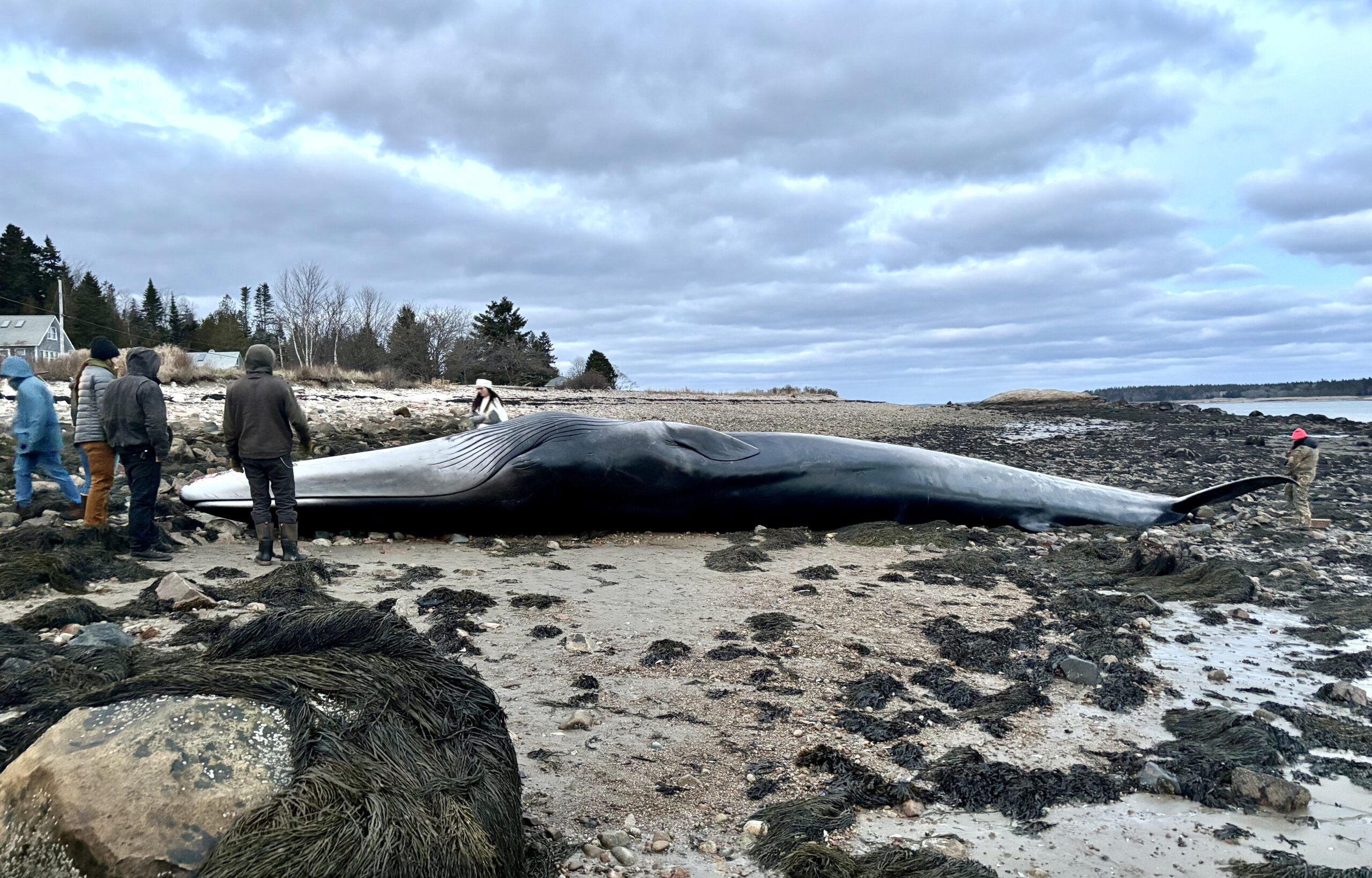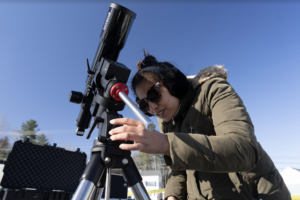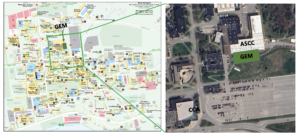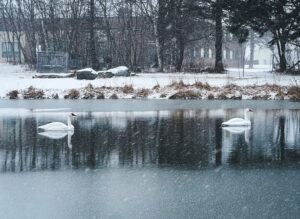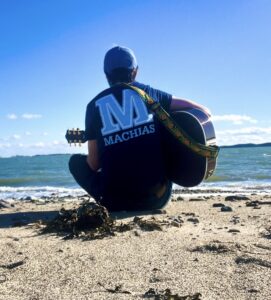In early November, a female Finback Whale was found beached on the shores of Steuben, Maine. Marine biology students at the University of Maine at Machias (UMM) eagerly rushed to the beach to catch a glimpse of the deceased sea giant.
“They only do that when something is wrong,” said Oliver “Ollie” Kyllonen, a marine biology student at UMM. This finding comes at a time of high tension between Maine lobster fishermen and marine conservation advocates fearing of whales succumbing to entanglements. However, this whale appears to have no signs of being involved in both an entanglement or a ship strike. Dr. Gayle Kraus, a professor of marine ecology at UMM, shed some light on how this whale could have been beached. Kraus said it is still largely unknown how the whale died and why it beached itself. Both Kraus and Kyllonen noticed that the whale appeared abnormally thin, postulating this as a clue to the mystery of its death.
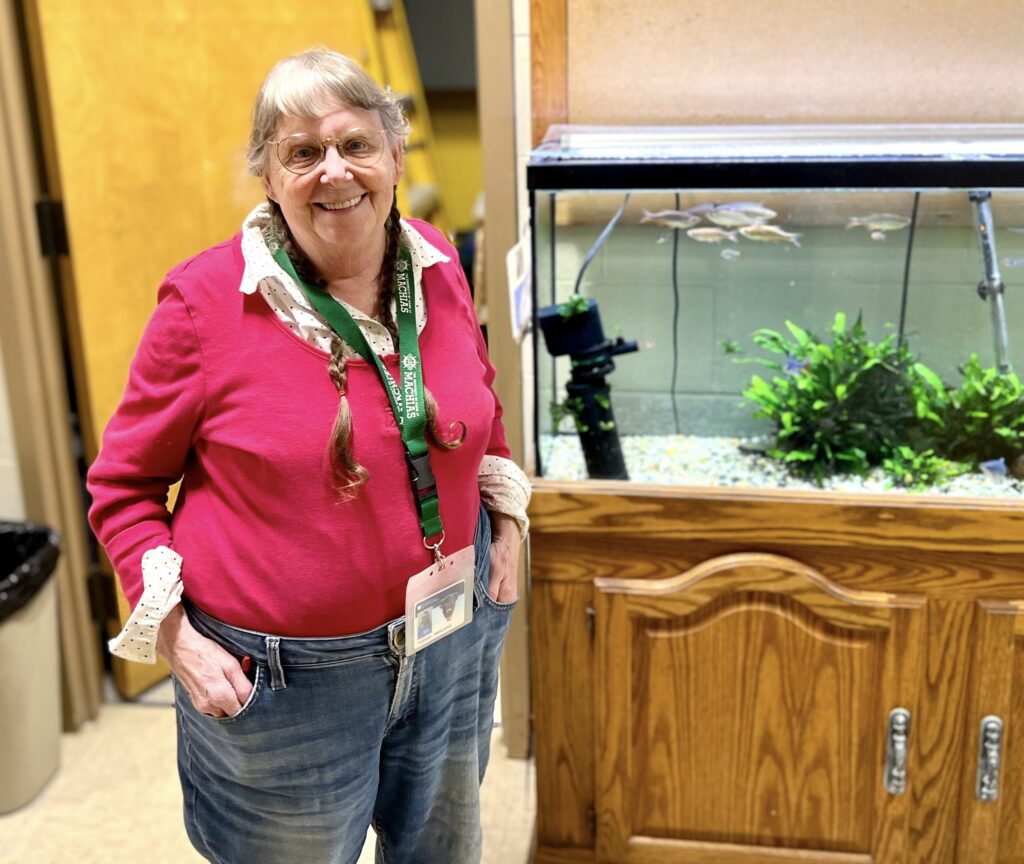
Krauss hoped that a necropsy (similar to an autopsy but regarding animal life) could be performed on the whale, but unfortunately, a brutal storm carried the entire 49 ft long Finback out to sea before it could be completed. For perspective, this whale is slightly under the length of a semi-truck trailer. The whale eventually resurfaced on the island of Petit Manan but is in a location that is inaccessible to the large machinery needed for a proper necropsy and has become too bloated to complete one. Due to the bloating of the animal, if it is dissected now to complete the necropsy, it could quite possibly explode, according to Kyllonen. A quick Google search shows numerous occurrences of the fascinating phenomenon of whale explosions.
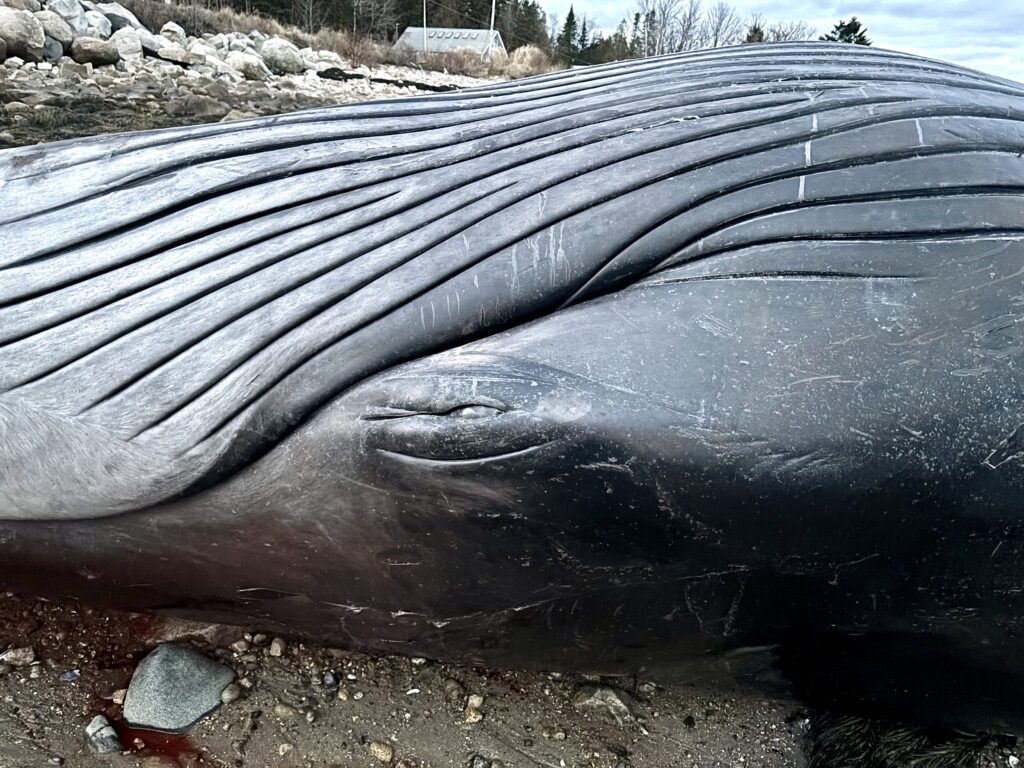
The discovery of the whale had originally been reported to Kraus by the College of the Atlantic’s marine mammal research and rescue group Allied Whale. Allied Whale also provides training to UMM students twice a year regarding identifying seals, taking certain measurements, and performing preliminary necropsies. Fortunately, Allied Whale was able to record data on the beached Finback before the storm carried the whale away, even while not being able to complete a full necropsy. Kraus stated that a full necropsy is “quite a production” involving machinery such as excavators, as she recalled helping perform one on another whale some years ago.
According to Kraus, almost every science class includes hands-on labs. This approach of favoring labs over lectures sets the classes apart from science classes at many other universities, while being in an incredible area of great biodiversity.
If you come across a stranded or deceased marine mammal, you are asked to call Allied Whale at 207-266-1326.
